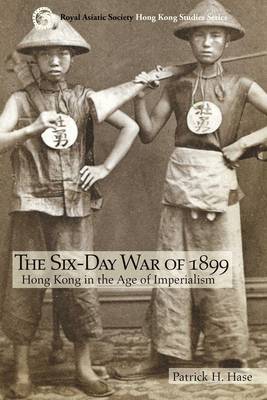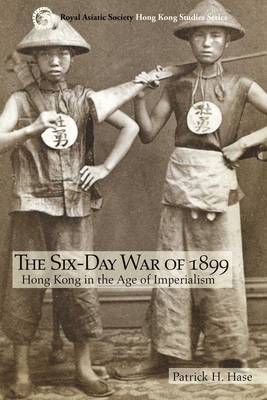
- Afhalen na 1 uur in een winkel met voorraad
- Gratis thuislevering in België vanaf € 30
- Ruim aanbod met 7 miljoen producten
- Afhalen na 1 uur in een winkel met voorraad
- Gratis thuislevering in België vanaf € 30
- Ruim aanbod met 7 miljoen producten
Zoeken
Omschrijving
In 1899, a year after the Convention of Peking leased the New Territories to Britain, the British moved to establish control. This triggered resistance by some of the population of the New Territories. There ensued six days of fighting with heavy Chinese casualties. This truly forgotten war has been thoroughly researched for the first time and recounted in lively style by Patrick Hase, an expert on the people and history of the New Territories. After brief discussion of British Imperialism in the 1890s and British military theory of that period on small wars, the heart of the book is a day-by-day account of the fighting and of the differences of opinion between the Governor of Hong Kong (Blake) and the Colonial Secretary (Lockhart) as to how the war should be fought. Dr Hase uses his deep knowledge of the people and the area to give a full picture of the leaders and of the rank-and-file of the village fighters. New estimates of the casualties are provided, as are the implications of the way these casualties are down-played in most British accounts. As a small war of Imperial Expansion, fought at precisely the high point of Imperial thinking within the British Empire, The Six-Day War of 1899 is of interest, not only to historians of Hong Kong and China, but also to historians of the British Empire and the British Army, and to general readers interested in military, imperial and Hong Kong history.
Specificaties
Betrokkenen
- Auteur(s):
- Uitgeverij:
Inhoud
- Aantal bladzijden:
- 304
- Taal:
- Engels
- Reeks:
Eigenschappen
- Productcode (EAN):
- 9789888139545
- Verschijningsdatum:
- 1/07/2014
- Uitvoering:
- Paperback
- Formaat:
- Trade paperback (VS)
- Afmetingen:
- 150 mm x 226 mm
- Gewicht:
- 453 g

Alleen bij Standaard Boekhandel
+ 55 punten op je klantenkaart van Standaard Boekhandel
Beoordelingen
We publiceren alleen reviews die voldoen aan de voorwaarden voor reviews. Bekijk onze voorwaarden voor reviews.











